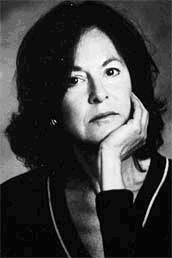One Art
BY PROF. VAROL AKMAN
Louise Glück
"Each great poem teaches its readers how to read it."
Louise Glück (pronounced "Glick") was born in New York City in 1943. She attended Columbia University and studied with Stanley Kunitz. Firstborn, her earliest collection of poems, was published when she was twenty-four. She is the author of numerous books of poetry, including A Village Life (2009); Averno (2007); The Seven Ages (2001); Vita Nova (1999); Meadowlands (1996); The Wild Iris (1992), which received the Pulitzer Prize; Ararat (1990); and The Triumph of Achilles (1985), which received the National Book Critics Circle Award. She has also published Proofs and Theories: Essays on Poetry (1994). Her other honors include the Bollingen Prize in Poetry (previous winners include Wallace Stevens, Marianne Moore, W. H. Auden, e. e. cummings, Robert Frost, and John Ashbery) and fellowships from the Guggenheim and Rockefeller foundations. In 1999 Glück was elected a chancellor of the Academy of American Poets. In 2003, she became the Library of Congress's 12th Poet Laureate Consultant in Poetry. She is a member of the American Academy and Institute of Arts and Letters.
The critic Helen Vendler regards Glück as a poet of powerful and lingering presence. Her poems, Vendler thinks, display the remarkable quality of being neither "confessional" nor "intellectual" in the customary senses of those words. Glück consistently studies individual psyche and emotions, expressed in a language of lucidity, alive with passion and free of sentiment. Her poetry, while never losing the presence of a personal voice addressing the reader, has strong mythic aspects and relies on silence and omission. "Vespers," Glück notes in The Best American Poetry 1992, was one of eight poems written in the summer of 1990, the first poems she'd done in two years. She was not thrilled with it or the other poems. The poems were an argument with the divine. (Vespers is solemn evening prayer of the church, cf. Psalm 141 which is always sung at Vespers: "Lord, I call upon Thee, hear me. Hear me, O Lord.") Although Glück had certain reservations about "Vespers" (too clever, too faultless), she realized that when the poem became a part of The Wild Iris it gained depth from the poems surrounding it.
Vespers
In your extended absence, you permit me
use of earth, anticipating
some return on investment. I must report
failure in my assignment, principally
regarding the tomato plants.
I think I should not be encouraged to grow
tomatoes. Or, if I am, you should withhold
the heavy rains, the cold nights that come
so often here, while other regions get
twelve weeks of summer. All this
belongs to you: on the other hand,
I planted the seeds, I watched the first shoots
like wings tearing the soil, and it was my heart
broken by the blight, the black spot so quickly
multiplying in the rows. I doubt
you have a heart, in our understanding of
that term. …